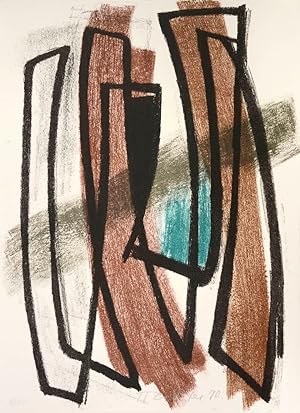taccuino vecchio ultimi cori terra di ungaretti giuseppe richter hans (2 risultati)
FeedbackFiltri di ricerca
Tipo di articolo
- Tutti i tipi di prodotto
- Libri (2)
- Riviste e Giornali (Nessun altro risultato corrispondente a questo perfezionamento)
- Fumetti (Nessun altro risultato corrispondente a questo perfezionamento)
- Spartiti (Nessun altro risultato corrispondente a questo perfezionamento)
- Arte, Stampe e Poster (Nessun altro risultato corrispondente a questo perfezionamento)
- Fotografie (Nessun altro risultato corrispondente a questo perfezionamento)
- Mappe (Nessun altro risultato corrispondente a questo perfezionamento)
- Manoscritti e Collezionismo cartaceo (Nessun altro risultato corrispondente a questo perfezionamento)
Condizioni
- Tutte
- Nuovi (Nessun altro risultato corrispondente a questo perfezionamento)
- Antichi o usati (2)
Legatura
- Tutte
- Rilegato (Nessun altro risultato corrispondente a questo perfezionamento)
- Brossura (Nessun altro risultato corrispondente a questo perfezionamento)
Ulteriori caratteristiche
- Prima ed. (Nessun altro risultato corrispondente a questo perfezionamento)
- Copia autograf. (1)
- Sovracoperta (Nessun altro risultato corrispondente a questo perfezionamento)
- Con foto (1)
- Non Print on Demand (2)
Lingua (1)
Prezzo
- Qualsiasi prezzo
- Inferiore a EUR 20 (Nessun altro risultato corrispondente a questo perfezionamento)
- EUR 20 a EUR 45 (Nessun altro risultato corrispondente a questo perfezionamento)
- Superiore a EUR 45
Spedizione gratuita
- Spedizione gratuita in Italia (Nessun altro risultato corrispondente a questo perfezionamento)
Paese del venditore
Valutazione venditore
-
Il Taccuino del Vecchio: Ultimi cori per la terra promessa con due litografie.
Editore: M'Arte Edizioni., Milano., 1971
Da: Libreria Antiquaria di Porta Venezia, Milano, Italia
EUR 430,00
Convertire valutaEUR 4,50 per la spedizione in ItaliaQuantità: 1 disponibili
Aggiungi al carrellofolio (38x28) pp. 56. Brossura incamiciata grigio chiaro con firme dell'autore e dell'artista in bianco al piatto, camicia con profili avorio, custodia rigida, ottimo esemplare. Con fogli sciolti all'interno e litografie protette da velina. Edizione originale di 149 es. numerati (ns. copia 6) con un poema di Giuseppe Ungaretti con 2 litografie a colori originali, numerate e firmate, di Hans Richter (cm 38x28). Versione tedesca di Paul Celan. Note bio-bibliografiche. Edizione composta in carattere Garamond da Renato Olivieri, Milano e stampata dalla Tipografia Stefanoni, Lecco su carta a mano della Filicarta di Brugherio. Le litografie di Hans Richter stampate da Brunetto Baldoni di Pesaro sono numerate e firmate dall'artista. La legatura sulla quale sono impresse le firme del poeta e dell'artista è staa eseguita da Giovanni De Stefanis di Milano.
-
Il Taccuino del Vecchio: ultimi cori per la terra promessa. Con due litografie.
Editore: Milan M'Arte Edizioni, 1971
Da: Shapero Rare Books, London, Regno Unito
Copia autografata
EUR 876,78
Convertire valutaEUR 9,48 per la spedizione da Regno Unito a ItaliaQuantità: 1 disponibili
Aggiungi al carrelloNumber 6 of a limited edition of 124, folio (40 x 30 cm), 48 pp., unnumbered, with 2 original colour lithographs by Hans Richter, numbered and signed by the artist (loose as issued), text in parallel Italian and German, reproduction of the original manuscript of the poem, in fine condition, publisher's printed grey paper wrapper, loosely held within grey paper covered folder, housed in a matching slip-case, a little marked and dust-soiled. MODIFY Volume 7 of the Images and Texts series by Luigi Majino and Roberto Sanesi. A finely printed work with 2 signed Richter lithographs. Guiseppe Ungaretti (1888 -1970) himself described poetry as the ability to express oneself 'with absolute candor, as if it were the first day of creation.' In this quest for purity and attempt to restore to words their original virginity, Ungaretti was following the paths traced out by the French symbolists, Rimbaud, Mallarme, and Apollinaire. Like them, he believed that a poem should suggest rather than describe, and that words have an evocative content beyond their everyday significance. However, when Ungaretti had done his essential work of purification, a change occurred in his diction. 'The lean syntax grew complex, the tenuous surface opaque, and the heart of the matter crowded, contorted with sorrows and perplexity.' Hans Richter (1888 - 1976) experienced the twentieth century's political nightmares first-hand, from combat in World War I in which he was severely wounded, to persecution by the Nazis and artistic censure in the Soviet Union. He never saw his art as separate from the conflicts and sufferings of humanity, but instead devoted his art to the creation of a better society.



